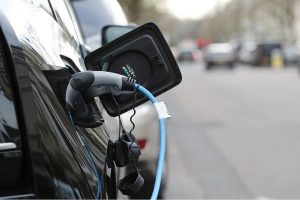THE possibility of domestic electric vehicle (EV) production will depend on the market reaching critical mass in both adoption and the number of charging stations, according to the Department of Trade and Industry (DTI).
“We will come to a stage where we will assemble the vehicles here (in the country). But we’re not yet there because there’s so many preconditions to bringing in EVs here. You need a critical number so you can have charging stations along the way. Otherwise, there will be no buyers if users cannot bring their EVs out of Metro Manila,” Trade Secretary Alfredo E. Pascual said on the sidelines of the Management Association of the Philippines general membership meeting in Taguig City last week.
He did not provide an estimate for which levels of adoption might make investors believe critical mass has been achieved.
Mr. Pascual said that the DTI is aiming to build a parts ecosystem for EVs from among medium-sized Philippine suppliers.
“I want Philippine manufacturers, particularly, medium-sized companies, to become suppliers of parts and components, to be part of the global value chain,” Mr. Pascual said.
In April, former Trade Secretary Ramon M. Lopez proposed the issuance of an executive order that would grant the remaining slot for local manufacturing under the Comprehensive Automotive Resurgence Strategy (CARS) program to a domestic EV producer.
Asked to comment, Mr. Pascual said that he is pushing for the CARS program, but maintained that some issues should be dealt with before EVs can be included in the initiative.
“We need to address the fundamental issues. It will take time to set up charging stations and the price of electricity in the country is high,” Mr. Pascual said.
The CARS program offers fiscal support to participating car manufacturers domestically producing at least 200,000 units within six years.
The program was supposed to have three car manufacturers, but only two companies enrolled — Toyota Motor Philippines Corp. (TMPC) and Mitsubishi Motors Philippines Corp. (MMPC).
TMPC manufactures its Vios small sedan while MMPC produces the Mirage under the program. The deadline for MMPC to achieve the Mirage production quota is 2023 while TMPC has until 2024 to manufacture the required number of Vioses.
The DTI has also proposed a zero-tariff policy for EV imports to reduce purchase prices and encourage broader adoption.
The Philippines recently passed Republic Act No. 11697 or the Electric Vehicle Industry Development Act. Under the law, companies, public transport operators, and government units are required to maintain vehicle fleets that include at least 5% EVs. — Revin Mikhael D. Ochave
